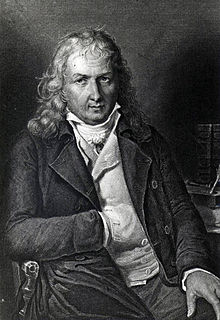A Quote by Christian Nestell Bovee
Every trait of beauty may be referred to some virtue, as to innocence, candor, generosity, modesty, or heroism. St. Pierre To cultivate the sense of the beautiful, is one of the most effectual ways of cultivating an appreciation of the divine goodness.
Related Quotes
God who is goodness and truth is also beauty. It is this innate human and divine longing, found in the company of goodness and truth, that is able to recognize and leap up at beauty and rejoice and know that all is beautiful, that there is not one speck of beauty under the sun that does not mirror back the beauty of God.
When virtue is pictured as innocence and innocence equated with childlikeness, the implication is obviously that knowledge and experience are no longer media of goodness, but have become in themselves contaminating. This is a very despairing outlook, in its way as black as Augustine's original sin, for it supposes that original goodness will in all likelihood be defiled...It surrenders the attempt to represent virtue in a mature phase.
It is not expensive to be beautiful. It takes only a little effort to be presentable and beautiful. But it takes some effort. And unfortunately people think of beauty as luxury, beauty as frivolity, ... or extravagance. Beauty is a discipline, beauty is art, is harmony, in the ideological sense and in the theological sense, beauty is God and love made real. And the ultimate reach in this world is beauty.
There are two kinds of beauty, one being of the soul and the other of the body, That of the soul is revealed through intelligence, modesty, right conduct, Generosity and good breeding, all of which qualities may exist in an ugly man; And when one's gaze is fixed upon beauty of this sort and not upon that of the body, Love is usually born suddenly and violently.
In the most general terms, the Enlightenment goes back to Plato's belief that truth and beauty and goodness are connected; that truth and beauty, disseminated widely, will sooner or later lead to goodness. (While we're making at effort at truth and goodness, beauty reminds us what we're hold out for.)
Christianity sees plants and flowers as created by God to show forth and share with humans the divine goodness, beauty and truth - the purpose of all Creation. In this flowers may be enjoyed simply and directly in themselves as showing forth God's goodness and beauty, or, more fully, as archetypes, signatures, symbols, and bearers of legends, mirroring the revealed articles of Christian faith - thereby serving as means for their teaching, recollection, contemplation and celebration.



































